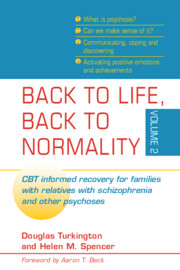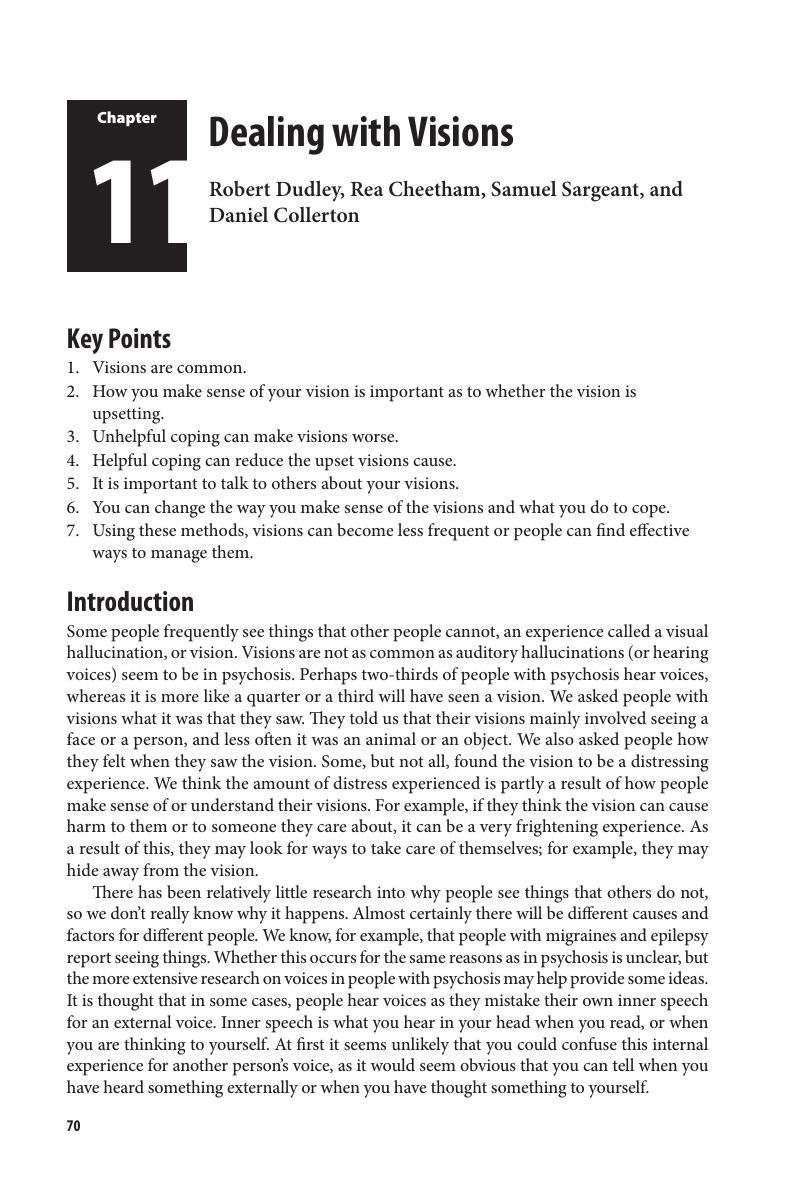 Back to Life, Back to Normality
Back to Life, Back to Normality Book contents
- Back to Life, Back to Normality Volume 2
- Back to Life, Back to Normality Volume 2
- Copyright page
- Contents
- Endorsements
- Testimonials
- Contributors
- Foreword
- Preface
- Chapter 1 What Is Psychosis? What Is Schizophrenia?
- Chapter 2 Psychosis Usually Has a Natural Tendency towards Recovery
- Chapter 3 Positive Aspects of Psychosis
- Chapter 4 When Can Psychosis Escalate and Will Medicines Help?
- Chapter 5 Making Sense of Psychosis
- Chapter 6 What If the Psychosis Is Linked to Trauma?
- Chapter 7 The Five Pillars of Caring for Psychosis
- Chapter 8 Effective Coping
- Chapter 9 Caring about Delusions and Unusual Beliefs
- Chapter 10 My Story of Psychosis and CBT
- Chapter 11 Dealing with Visions
- Chapter 12 Compassion-Focused Approaches for Clients, Families and Health Care Providers
- Chapter 13 Improving Self-Care, Attention/Memory, Motivation and Social Functioning
- Chapter 14 Where Can We Learn More?
- Index
- References
Chapter 11 - Dealing with Visions
Published online by Cambridge University Press: 16 November 2018
- Back to Life, Back to Normality Volume 2
- Back to Life, Back to Normality Volume 2
- Copyright page
- Contents
- Endorsements
- Testimonials
- Contributors
- Foreword
- Preface
- Chapter 1 What Is Psychosis? What Is Schizophrenia?
- Chapter 2 Psychosis Usually Has a Natural Tendency towards Recovery
- Chapter 3 Positive Aspects of Psychosis
- Chapter 4 When Can Psychosis Escalate and Will Medicines Help?
- Chapter 5 Making Sense of Psychosis
- Chapter 6 What If the Psychosis Is Linked to Trauma?
- Chapter 7 The Five Pillars of Caring for Psychosis
- Chapter 8 Effective Coping
- Chapter 9 Caring about Delusions and Unusual Beliefs
- Chapter 10 My Story of Psychosis and CBT
- Chapter 11 Dealing with Visions
- Chapter 12 Compassion-Focused Approaches for Clients, Families and Health Care Providers
- Chapter 13 Improving Self-Care, Attention/Memory, Motivation and Social Functioning
- Chapter 14 Where Can We Learn More?
- Index
- References
Summary

- Type
- Chapter
- Information
- Back to Life, Back to NormalityCBT Informed Recovery for Families with Relatives with Schizophrenia and Other Psychoses, pp. 70 - 78Publisher: Cambridge University PressPrint publication year: 2018
References
References
Further Reading
For more information about visions please consider the following.
Websites/Other Info
A website which provides examples of when people have seen faces in everyday objects: www.boredpanda.com/pareidolia-faces-everyday-objects/
Useful website information includes Michael Shermer's TED talk covering topics that show how powerful expectation can be and how easily tricked we can be by optical illusions, etc.: www.ted.com/talks/michael_shermer_on_believing_strange_things?language=en
Intervoice is an online community where people share experiences about hearing voices, but they often consider other experiences such as visions: www.intervoiceonline.org


